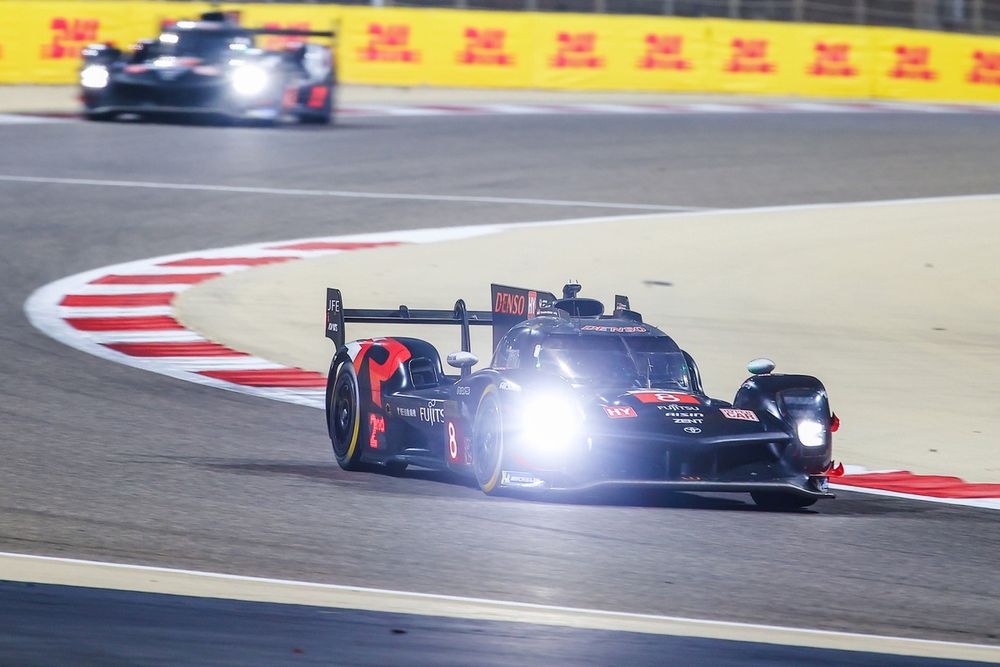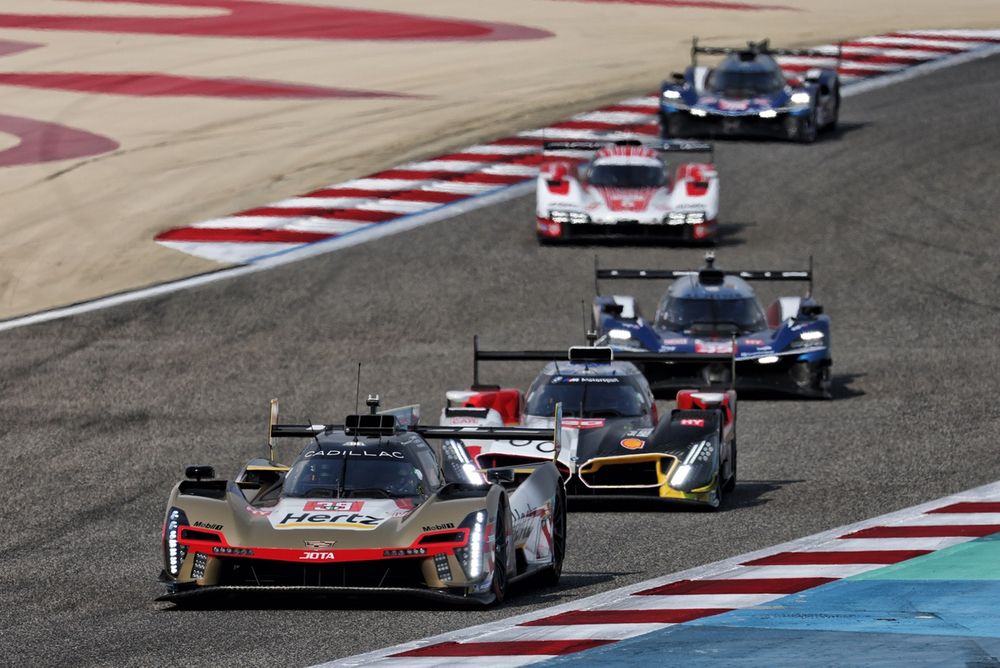Opinion among the manufacturers appears split on the potential introduction of success handicaps in the Hypercar class for next year’s World Endurance Championship.
Ferrari is among the marques that has come out against the idea of bringing in handicaps, provision for which has been made in the 2026 WEC sporting regulations, to supplement the Balance of Performance as a means of levelling the playing field in Hypercar.
Antonello Coletta, Ferrari’s head of endurance racing, said: “It is clear if we have success ballast [handicaps] plus the BoP it makes no sense.
“It is important that all the manufacturers have a chance to improve our cars and with both it is impossible.”
Alpine was another manufacturer to come out against a system that would involve cars being slowed based on the results achieved in each race.
Bruno Famin, Alpine’s vice-president of motorsport who heads up its LMDh programme, insisted that the focus should be on making the BoP work.
“The system is not perfect, but it is easy to correct,” he said. “We all entered the championship knowing there was the BoP and I am confident we can make it work. We shouldn’t throw the baby out with the bath water because there has been some kind of malfunction this season.”
#36 Alpine Endurance Team Alpine A424: Jules Gounon, Frederic Makowiecki, Mick Schumacher
Photo by: Andreas Beil
Peugeot Sport technical director Olivier Jansonnie raised philosophical objections to success handicaps.
“Our perspective is that the cars should be balanced on the performance that is displayed on track and not on the sporting results,” he explained.
He suggested that improving the existing BoP system is now down to “tiny details”.
BMW appeared sceptical about the introduction of success handicaps, though BMW M Motorsport boss Andreas Roos insisted he didn’t want to say they are “negative or positive”.
“I am a bit more for stability in terms of how we handle the BoP process, or keeping the competition as close as possible,” he said. “Adding another layer has to be deeply evaluated: we have to be careful not to add something that creates more confusion and makes it even difficult for the fans and for the audience to understand what’s going on.”
Toyota and Porsche, with the latter not represented by its factory Penske team in the WEC next year, suggested that there were merits to the system.
“Clearly we have seen that what we have this year is not working,” said Toyota Gazoo Racing Europe technical director David Floury. “Definitely the success handicap is a tool that is available to try to improve things.

#8 Toyota Gazoo Racing Toyota GR010 — Hybrid: Sebastien Buemi, Brendon Hartley, Ryo Hirakawa
Photo by: AG Photo — Daniele Paglino
“It needs to be considered, but to make a final decision we need to run many, many simulations. At the moment we have not really started any in depth discussions.”
Toyota and, specifically, former technical director Pascal Vasselon were the architects of the system of success handicaps in place in the LMP1 class for the 2019/20 WEC.
Urs Kuratle, who heads up the LMDh project at Porsche, suggested that the idea of handicaps needs to be discussed further after first being raised at a rules meeting in Paris in September when the manufacturers met with the WEC rule makers the FIA and the Automobile Club de l’Ouest to discuss the future direction of the rules.
“We should not lose any possibility to find solutions to bring everything together,” he said. “This could be one of them: I am not saying it is the only one and would cure all the problems, but it is one thing that we have to discuss.”
Both Cadillac and Aston Martin towed a political line when questioned about success handicaps.
Cadillac programme manager Keely Bosn said there are “pros and cons, arguments to be made on either side”.
“If that is something that is implemented we will follow the guidelines that are set forth for the series,” she added.

#38 Cadillac Hertz Team Jota Cadillac V-Series.R: Earl Bamber, Sebastien Bourdais, Jenson Button
Photo by: James Moy Photography via Getty Images
Aston Martin head of endurance Adam Carter said: “I respect the platform that the FIA, the ACO and IMSA has created, and will support them in determining what is best for the sport.”
It appears unclear whether provision for success handicaps has been made for next year with a clear intent to introduce them or as a back-up in case a consensus cannot be achieved on a revised BoP.
A statement from the FIA in the wake of the publication of the revised sporting rules last month stressed that “no decision has been made at this stage”.
We want your opinion!
What would you like to see on Motorsport.com?
— The Motorsport.com Team








